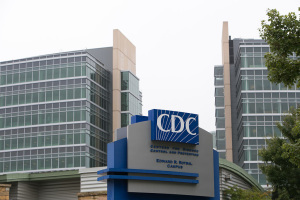AACC Adopts 2 Year Restructuring Program
Reversing the trends against clarity and growth
YAOUNDE, Cameroun — The delegates to the All Africa Conference of Churches formed a task force to help implement its newly adopted 2-year restructuring program, during its Nov. 27 conference at Yaounde, Cameroun. The task for intends to reverse the past trends of diminishing financial backing and dwindling leadership within the AACC.
The 2-year period of transition was seen as a necessary buffer to “give flesh to the nature, type and content of the restructuring” of the ecumenical organization. By 2006, the delegation hopes to develop a business plan, reorganize the AACC secretariat, install financial systems and develop “an appropriate work culture” around the organization’s new general secretary, the Rev. Myume Dandala.
According to Dandala, a South African Methodist, there was been “a lack of clarity as to areas of responsibility and cooperation” between the AACC, which covers the whole of Africa, and the national councils of churches in various countries.
“There has been a lot of tripping on each others’ toes,” said Dandala, adding that many concerns were raised about the areas in which the AACC needed to focus its energies. But inadequate resources have proven most damaging, he noted.
“Because of lack of clarity or focus, many a donor partner has not felt confident that what he puts in the AACC necessarily delivers what he or she wants to contribute for the betterment of the continent of Africa,” Dandala said.
“Slowly people have just been saying, ‘Look we want to put our money where we know it is going to have a very direct effect.’ I think that is a fair thing for people to do,” noted Dandala. “It is for the AACC to actually demonstrate how the work it is doing actually enables the delivery to have benefited the continent of Africa.”
According to the AACC’s newly-elected president, the Rev. Nyansako Ni-Nku, moderator of the Presbyterian Church in Cameroon, the AACC is poised to move from beyond a “crisis of leadership” and mere survival tactics.
“We identified a new general secretary and now we have a new general committee [made up of representatives from all regions],” said Ni-Nku, who takes over as AACC president from Kwesi A. Dickson, a university professor from Ghana.
“Up until three or four weeks ago, we were not very sure that this assembly would be held,” noted Ni-Nku. “So the fact that it was even held at all for me is quite a miracle and is a demonstration of the fact that there is great potential for change.”
The AACC, founded in 1963, has 169 member and associate churches in over 39 African countries.




























